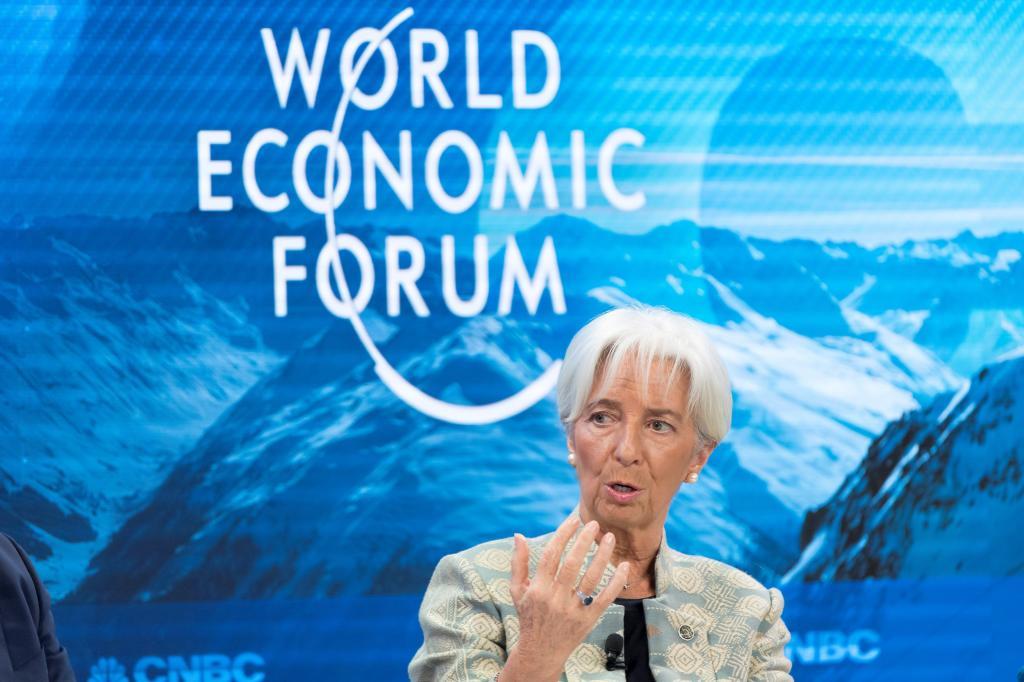Private debt, the same that caused the 2008 crisis in the US and 2010-2013 in the EU, is once again a matter of concern . This has been expressed by the International Monetary Fund (IMF) today in its World Financial Stability Report, which is published semiannually. This time it is the debt of companies and financial institutions that are not banks - mainly private equity and venture capital funds, brokers, investment vehicles, and hedge funds - which has raised the alarms of the institution.
It is a situation that has been largely generated by ultra-low interest rates and the so-called 'quantitative relaxation' , that is, the purchase of assets by the central banks of all developed countries to revive the economies. With that policy, monetary authorities have tried to combat persistently low inflation, fragile economic activity, and poor job creation since the end of the crisis.
As stated by the director of the Fund's Financial Department, Tobias Adrian, in the presentation of the report , "with the lowest interest rates for longer, the financial conditions have relaxed, thus helping to contain downside risks and supporting to global growth ... for now. "
But they have also created excess liquidity and compressed the profitability of the assets. In fact, as the report recalls, around 15 billion dollars (13.6 billion euros) of debt worldwide have negative returns. That represents almost a third of the outstanding bonds, according to the IMF.
To combat that, investors have sought risk alternatives. And the result is a more vulnerable financial system worldwide, including "systemic " countries - those whose financial instability can endanger the world system, among which are the industrialized and Chinese economies - or "emerging." Because the problem is not the volume of debt, but the quality of that debt.
Slope
That is, that private debt of companies and financial institutions that are not banks or insurers can be repaid. And there Spain is among the countries that go wrong in the document. The debt of the Spanish companies rose with Aznar and in the first term of Zapatero; From there, it has descended. And, if compared to the assets of the companies, the decline is much greater. But as or more important than the dimensions of debt is your risk.
The World Financial Stability Report raises alarm at the fact that "the speculative debt of the business sector is almost 50% in China and the United States and is even larger in Italy, Spain, and Great Britain, despite the notable declines since the financial crisis. " In fact, Spain is, of those countries, the one that has reduced it the most (in China and the US, in fact, it has increased). The problem is that it starts at a higher level than the others.
Speculative debt is one that has a higher risk. For this, the note of the risk rating agencies is used as a reference. A 'rating' of Standard and Poor's lower than Baa or Moody's below BBB causes a debt to be classified as "speculative." Regulated financial institutions - banks, insurers, and pension funds - are often prohibited from investing in this type of debt because of their risk. But that is not the case of those that are not, such as, again, private equity and venture capital funds, brokers, investment vehicles, and hedge funds.
The problem is compounded because much of this debt has little liquidity, so it is not easy to get rid of it if its value falls or if its holders need liquidity.
Equally worrying is what the Fund calls 'debt-at-risk' (literally 'debt at risk'), which is, in the terminology of the institution, the debt of companies and financial institutions that are not able to generate the necessary income nor to pay interest , which often causes them to take more debt to meet those payments.
The debt of this type has gone from being 40% of that of Spanish companies to approximately 25%, that is, above countries such as Italy, Germany, and Japan, although below the US and Britain, and at the same level than France and China.
Perhaps the most optimistic message of the Fund in relation to Spain's debt is the fact that families continue to reduce their debt. In any case, Adrian's message has been clear: it is necessary to "reduce those vulnerabilities, which may aggravate the next crisis."
According to the criteria of The Trust Project
Know more- China
- Spain
- IMF
- Italy
- Jose Maria Aznar
- France
- Japan
- U.S
- Germany
- Crisis
- Markets
- economy
- Greece Elections
Policy Investment banking puts Spain in a "very vulnerable" position due to the lack of political pacts
Finance Half of the big banks in the eurozone would not survive six months in a liquidity crisis
The OECD lowers global growth to its lowest level since the crisis and warns: monetary policy has run out

